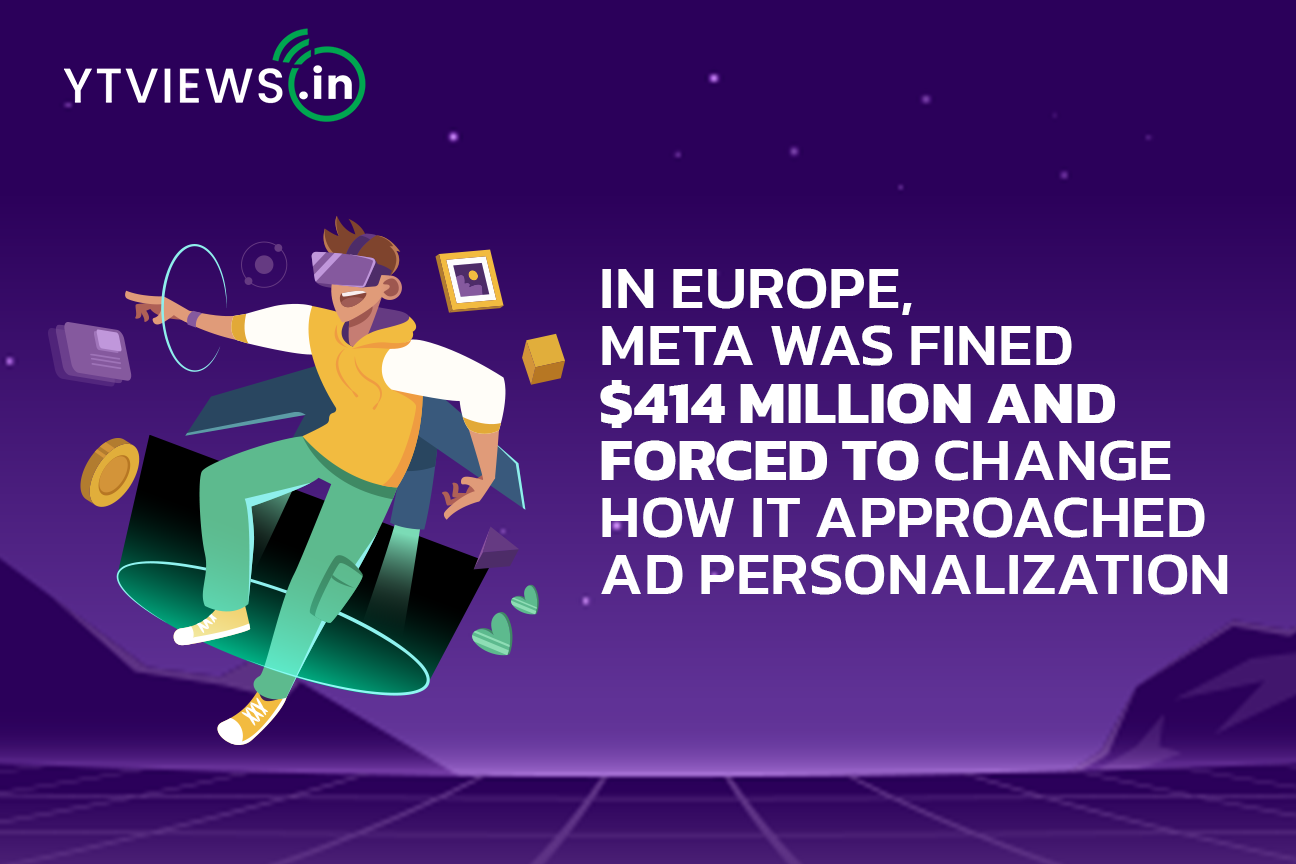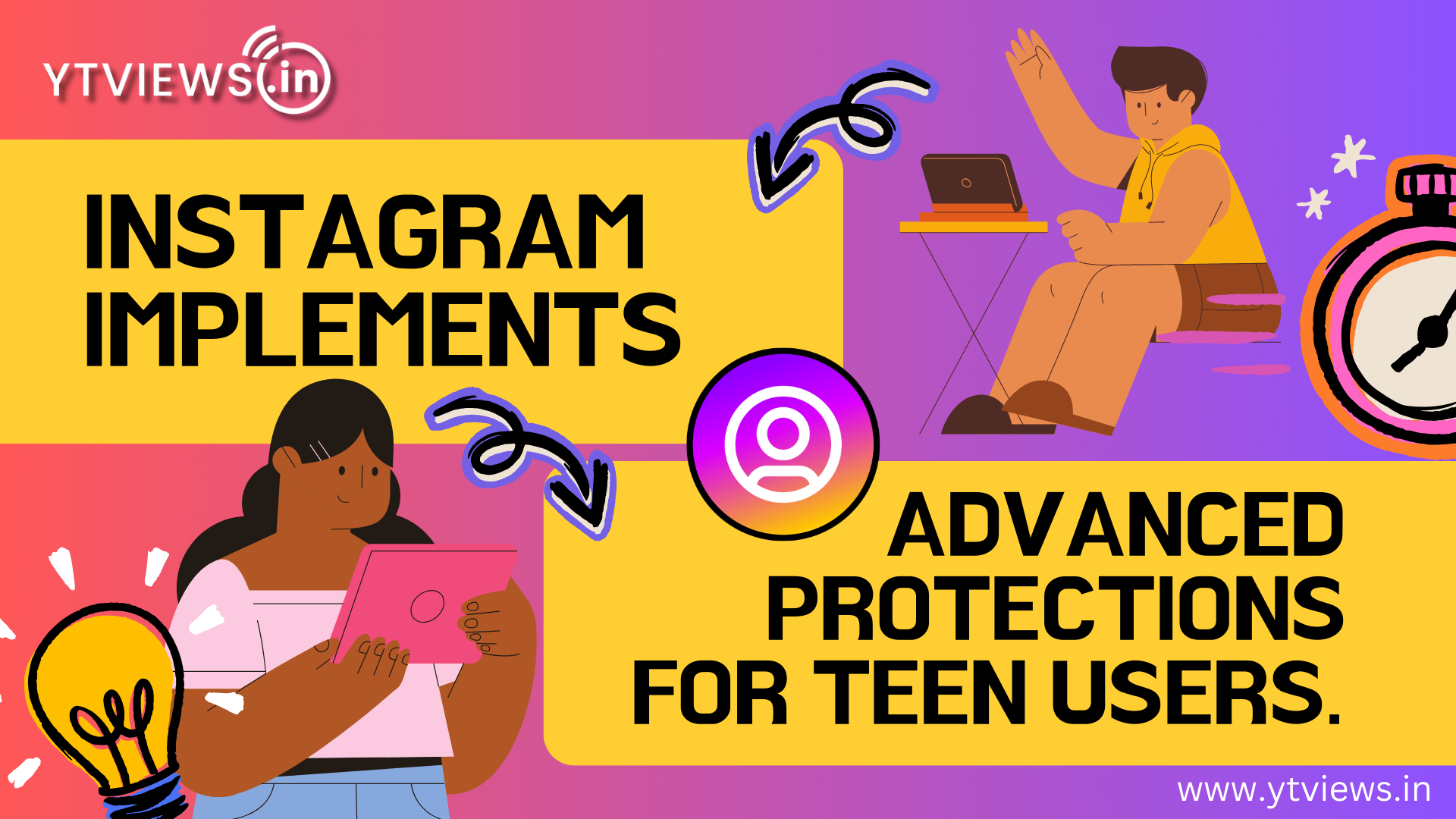In Europe, Meta was fined $414 million and Forced to Change How it approached AD Personalization
 After EU regulators ruled that Meta was illegally forcing users to accept personalized ads in its apps, Meta may have to make significant adjustments to its targeted ad offerings in Europe.
After EU regulators ruled that Meta was illegally forcing users to accept personalized ads in its apps, Meta may have to make significant adjustments to its targeted ad offerings in Europe.
Meta may be compelled to restructure its current ad systems and the methods by which it obtains user permission for them within its apps as a result of the ruling and a fine of €390 million ($414 million). In other words, the ruling suggests that Meta may have to obtain explicit consent from each of its 408 million EU users in order to display personalized ads to them, or else it runs the risk of receiving additional fines for violating the EU’s GDPR.
By including this agreement in its lengthy terms and conditions, Meta obviously already has individual permission for this. However, the ruling suggests that Meta may need to obtain more explicit consent for ad personalization going forward and that this may not be sufficiently clear in accordance with the GDPR guidelines.
Meta has responded by stating that the judgment will not hinder its European operations and that it intends to challenge both the ruling and the fine.
According to Meta: “We are disappointed by these decisions and intend to appeal both the substance of the rulings and the fines because we strongly believe our approach respects GDPR”.
Meta says that it uses “a combination of legal bases to provide various services.” This means that even if the ruling is upheld, it will still be able to deliver personalized ads in the region. In regards to potential restrictions on its operations, Meta says that it uses “a combination of legal bases”.

It is essential to keep in mind that these choices do not prevent personalized advertising from appearing on our platform. The decisions only concern the legal basis on which Meta provides particular advertising. Our platforms allow advertisers to continue reaching potential customers, expanding their business, and developing new markets.
Meta claims that it has used a legal basis known as “Contractual Necessity” for a long time to display personalized ads in its apps, but EU officials are now urging it to alter its strategy. Which, Meta believes, will only alter the legal provision under which it could operate rather than prevent it from carrying out its usual activities.
The decisions do not require the use of Consent, which is another legal basis that is available under GDPR, for this processing. Similar businesses process data on a variety of legal bases, and we are evaluating a number of options that will enable us to continue providing our customers with a fully personalized service. It is incorrect to suggest that Meta will no longer be able to provide personalized ads across Europe without first obtaining the consent of each user.
Thus, Meta believes that it will effectively continue to provide personalized advertisements in the same manner as in the past. It might just need to lay out exactly how it does things, which shouldn’t have much of an effect on users or advertisers.
But Meta will have to do more regulatory work, and the GDPR framework will add more provisions and processes. which, in theory, is good because it gives EU users more protection for their data. However, in practice, it is difficult to determine whether the GDPR campaign as a whole has actually been of significant benefit.
In any case, Meta now has three months to respond to the EU ruling. According to Meta, the company will likely appeal and re-align its usage terms with another regional legal provision.
Related Posts

Instagram Implements Advanced Protections for Teen Users.

5 Skills to Become a Successful Social Media Marketer

LinkedIn Adds AI Training Opt-out Option

What Video Editing Software Do Youtubers Use in 2024?

How VoIP Services are changing the Way We Make Calls






































